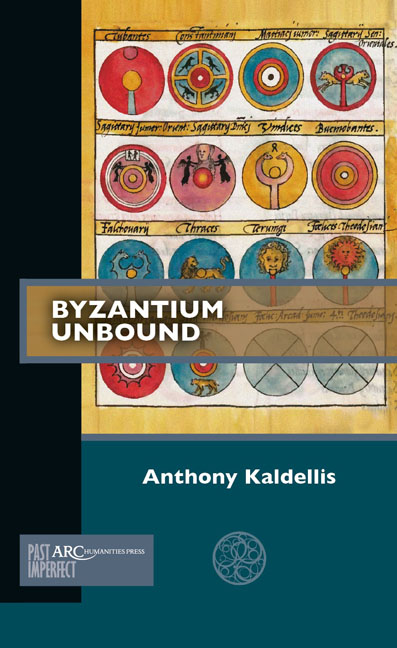Chapter 4 - Byzantium Was Not Medieval
Published online by Cambridge University Press: 20 November 2020
Summary
It seems, OItalians, that you no longer remember our ancient harmony. […] But no other nations were ever as harmonious as the Greeks and the Italians. And this was only to be expected, for science and learning came to the Italians from the Greeks. And after that point, so that they need not use their ethnic names, a New Rome was built to complement the Elder one, so that all could be called Romans after the common name of such great cities, and have the same faith [Christianity]. And just as they received that most noble name from Christ, so too did they take upon themselves the national name [Roman]. And everything else was common to them: magistracies, laws, literature, city councils, law courts, piety itself; so everything was common to the people of Elder Rome and New Rome. But Ohow things have changed!
Georgios Akropolites, Byzantine diplomat and historian thirteenth century)“Medieval” has both a specific and a generic sense. The specific sense refers to the history of western Europe between the fall of Rome and the Renaissance or early modernity. Its geography is broadly coterminous with the use of Latin as a learned language and with the jurisdiction of the Church of Rome. The huge majority of practising “medievalists” study England, France, northern Italy, and to a slightly lesser extent the German lands, and there is now a significant interest in Scandinavia. Slavic cultures and Byzantium are considered separate fields. Southern Spain and southern Italy fall into an almost different field, or quasi-field, the “medieval Mediterranean,” entry into which virtually requires that one work on “contacts” across religious communities. This specific sense of the medieval world accounts for the vast majority of papers given at medieval conferences, the articles published in medieval journals, and the areas of expertise of those hired as medievalists. These areas include English peasants, French queens, and German nuns, but rarely Slavic chiefs, Byzantine tax systems, or Islamic thought.
If language is a unifying thread of this field, it is Latin. Medievalists are not normally trained in Slavonic, Greek, or Arabic. If religion is another thread, it is the Catholic Church.
- Type
- Chapter
- Information
- Byzantium Unbound , pp. 75 - 92Publisher: Amsterdam University PressPrint publication year: 2019

